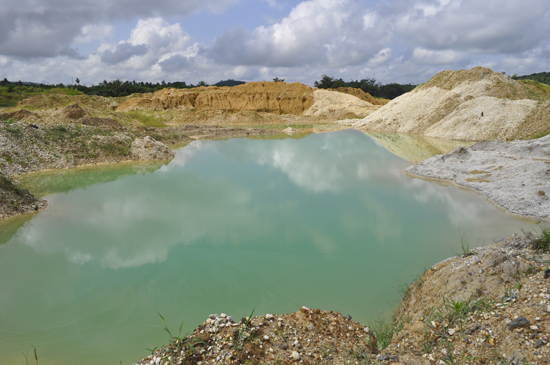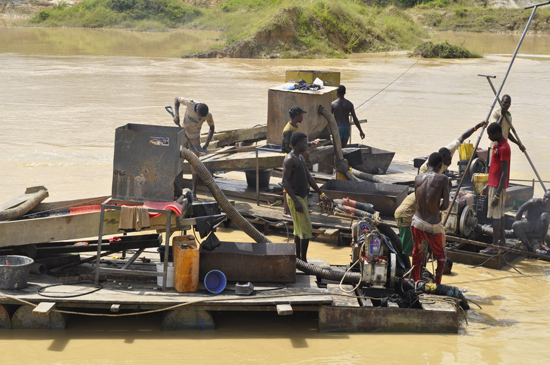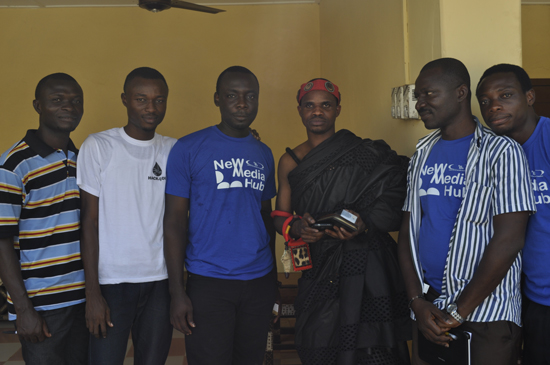
Can Good Journalism Boost Natural Resource Sector Accountability? Q&A With Rayborn Bulley of Penplusbytes
After more than a century of mining, mineral wealth has yet to transform the lives of most of Ghana’s citizens. However, public awareness of the power of natural resources to improve development is growing, thanks to an engaged corps of journalists in the country.
As part of its effort to strengthen media oversight of the extractive sectors, NRGI recently organized a mentor-led field trip to the Ashanti Region, where reporters visited the mining towns of Obuasi and Prestea to better understand the issues and challenges faced by the local people. Afterward, press mentor Rayborn Bulley of NRGI partner Penplusbytes sat down with NRGI’s Rushaiya Ibrahim-Tanko to discuss the field trip and his views on journalism, activism and development.
As a journalist yourself, how satisfied are you with the extent and manner in which the media has covered the extractive sector in Ghana?
Until the middle part of this year, the coverage was not too deep. But owing to some level of structured training and encouragement, the quality has improved. Recently published reports are worth reading, as they tease out the issues and should force government to better appreciate and deal with governance matters.

Mining waste pollutes the banks of Ghana’s Ankobra River, near Prestea.
What about the plight of communities affected by mining communities, as witnessed during the field trip? Is it sufficient?
This is the challenge we find: Most of our journalists still do not realize the importance of reporting on communities. Our field trip helped identify this shortcoming, and I am happy that the reports that I have seen are focusing on the communities and their chances of survival after AngloGold Ashanti closes in Obuasi.
What else should Ghanaian journalists do to improve the quality of their reporting?
They must reduce the dependence on “officialdom” and look at local impact. For example a story on the recently announced 2015 budget could have been a case study of a family, their total earnings, and the impact of a reduction in the price of liquefied petroleum gas over a quarter or a half year. This should demonstrate the benefits of that policy on the citizenry.

Galamsey operators, or illegal artisanal miners, use both heavy machinery and traditional panning techniques to hunt trace amounts of gold in Ghana’s rivers.
Have you noticed a positive impact of capacity building programs, such as this field trip, on the media in Ghana?
This is the first time some of the journalists on the trip have been able to see galamsey [or illegal artisanal mining] operations and spoken to real operators. From their stories, it is clear that operators care very little about the repercussions of their operations on water bodies and the environment, and that roads in many of the mining townships are in a very poor state.
There is no doubt in my mind that this field trip has improved the understanding of the journalists and the quality of their reportage. The knowledge acquired by the group is reflected in the stories that they have so far churned out.

Prestea’s chief meets with journalist on a media field trip with NRGI and PenPlusBytes.
To read more about mining issues in Ghana, find recent press coverage of the mentor-led field trip:
-
“Prestea: life means mining,” The Sun Online
-
“AngloGold massive retrenchment may have dire consequence on economy,” Modern Ghana
-
“Women Mostly Affected by Anglo-gold Ashanti’s Redundancy Exercise,” Nigerian Orient News
Rushaiya Ibrahim-Tanko is NRGI’s Ghana office manager.
